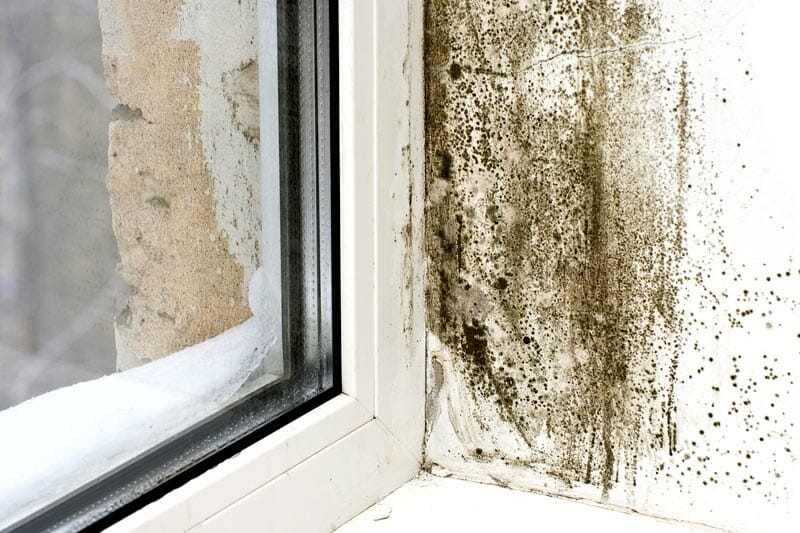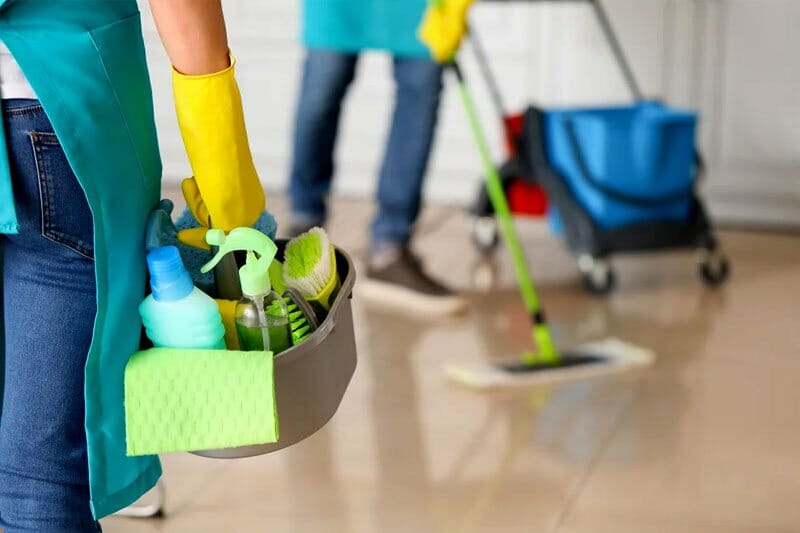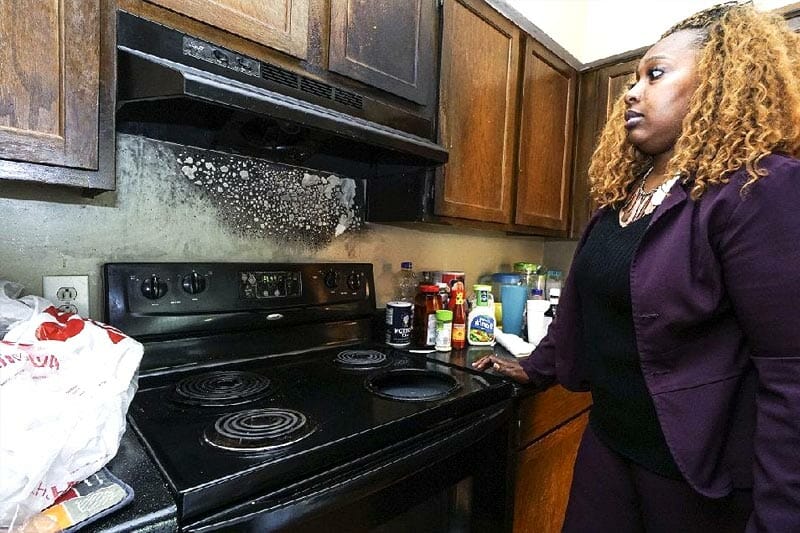Currently, should you be unwinding in Arkansas, it’s important to be aware that no existing laws require landlords or property managers to tackle mold problems in their buildings.
Although there is no written law, landlords do have the responsibility to keep a tenant’s home safe and habitable and to take all necessary precautions to ensure the safety of their tenants.
In this article, we have put together comprehensive and valuable information for both tenants and landlords.
What we cover
ToggleDoes Arkansas state have mold laws?
Currently, there are no specific laws or regulations requiring property owners to remediate the presence of mold in a rental property. Combating mold has to be a shared responsibility between both the landlord and the tenant.

Landlord responsibilities
Landlords in Arkansas are only required to give a unit “as-is” and are not generally responsible for making repairs.
Landlords are only required to make repairs if they are specified in the lease agreement.
Arkansas is one of the few states that does not have either an explicit or implicit warranty of habitability.
Also, Arkansas law makes landlords essentially immune from almost all liability to tenants.
Tenants responsibilities
Tenants in the first place have to pay rent in a timely manner.
Aside from that, the tenant must keep the unit in line with cleanliness standards, and not disturb other tenants or neighbors.
Arkansas tenants have very few housing rights under Arkansas law. They are assumed responsible for making any repairs or maintenance on the unit.
Also, tenants cannot withhold rent or make repairs and deduct the cost from future rent payments.
If the mold presence is not due to the tenant’s neglect, the landlord will be responsible for any needed repairs.
Note: See full list of states and mold laws here
Who is responsible for cleaning mold in a rental property?
Even without specific law that governs mold problems in a rental, the landlord can still be held responsible for fixing the problem.
All states but Arkansas hold the landlords responsible for maintaining fit and habitable housing and repairing the rental property. This extends to fixing leaking pipes, windows, and roofs.
But, if the tenant can convince the judge and jury of the landlord’s negligence and failure to repair the defects that caused mold that lead to health problems, then he/she might be able to hold the landlord responsible.

Mold growth due to tenant neglect
The liability significantly changes if the tenant’s behavior is the reason for mold growth.
Several reasons such as keeping the apartment tightly shut, providing high humidity, or simply failing to maintain the necessary cleanliness can bring the tenant to the position of a mold maker.
Tenants have a responsibility to maintain the rental unit, so the landlord is not responsible if the tenant’s negligence is the sole cause of injury.
Always practice good housekeeping to avoid causing any mold problems.
Is mold disclosure required by law in Arkansas?
No. Actually, the seller doesn’t have an obligation to make any formal disclosure statement to a potential buyer about the condition of the property.
Judges in Arkansas are guided by the doctrine “let the buyer beware” and ordinarily refuse to compensate buyers for mold problems after the purchase.
An exception is made only when the seller did something on purpose to prevent the buyer from inspecting the property to find all of the defects.
Clauses in the lease about mold
There is a possibility for landlords’ clauses that purport to relieve them from any liability arising from the appearance of mold.
On the other hand, the court in Tennessee has refused to enforce such a clause, ruling that to do so would be against public policy.
Most states require landlords to disclose mold information to future tenants.
Can you withhold the rent in Arkansas due to mold?
No, the tenant cannot withhold rent payment in Arkansas if the landlord fails to fix the mold problem. The only solution for the tenant if the landlord fails to provide habitable premises is to send a landlord written notice of the issues.
How long does the landlord have to fix the problem?
After the landlord receives the notice he must fix the mold problem within 30 days. If not, the tenant can terminate the rental agreement without penalty and receive a refund of the security deposit.
Does mold exposure allow you to sue the landlord in Arkansas State?
Yes. If you can prove that your landlord neglected his\her duty to protect your health and violate the rental agreement, you can go to court. You could potentially collect damages for medical bills, lost wages, loss of property value, and pain and suffering.
In Arkansas, there are several ways that tenants could potentially sue for damages relating to indoor air quality and mold spores exposure in rental properties.
Suing for mold in Arkansas State could result in success if the mold damage and exposure were caused by the negligence of the obligations by the owner or due to failure to uphold legal responsibilities as set out in the Landlord-Tenant Act.
According to the Arkansas Residential Landlord and Tenant Act, all rental properties must be fit for human occupation.













